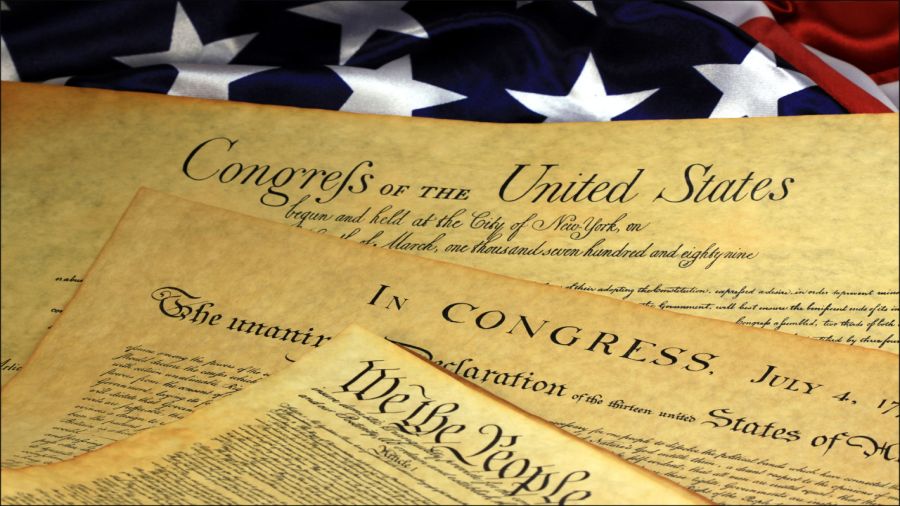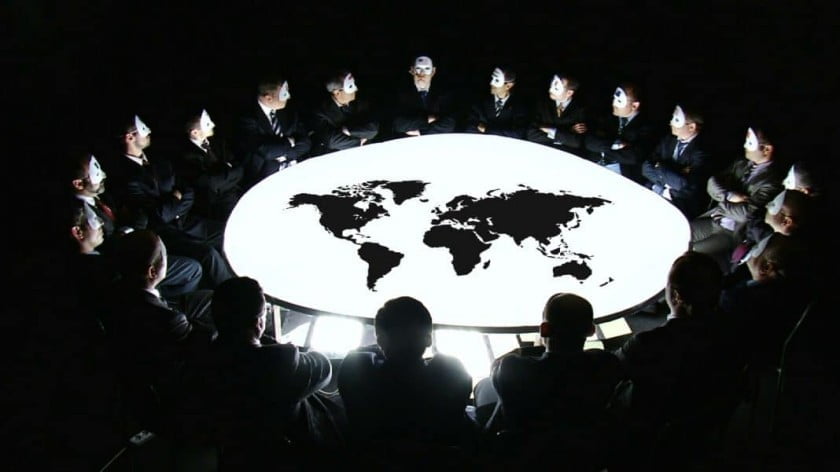The Western Constitutional Model Is Driving Instability in the World
The written, democratic constitution continues to be the norm lionized by the so-called ‘civilized nations’ of the West, upheld as the best way to organize society that mankind has come up with. For that reason, a little more analysis of them is in order.
Two main problems stand out. First is the notion of its universality. The standard model, based largely on the Philadelphia constitution of 1787 that created the US federal government, with three antagonistic branches – legislative, executive, and judicial – checking and balancing each other, is rooted in the English historical experience, in the very long relationship of the English monarch with the Lords of the realm and with the common folk. The bicameral legislature, the jury trial, etc., cannot simply be exported to and superimposed on any other ethnos of the world: This type of system will work well mainly for people of the English family.
The more perceptive writers in the West like Edmund Burke and Joseph de Maistre, in an attempt to quell the revolutionary spirit of their times, stressed repeatedly in their speeches and writings that each people has its own divinely-ordained, unwritten constitution that is the result of its character, customs, geography, history, spiritual condition, etc. The written constitution, in order to be of benefit to the native folk, must be in conformity with the unwritten one. Thus, one cannot simply take one type of constitution and apply it to all other countries without running into a horrible situation much like Procrustes’s bed.
The other problem is that the typical Western-style constitution has made the spiritual life a private, superfluous affair. Public life in general has become secularized, as the collective work of the people is redirected mainly to this-worldly ends. The US constitution is the prototype; its Preamble states, ‘We the people of the United States, in order to form a more perfect union, establish justice, insure domestic tranquility, provide for the common defense, promote the general welfare, and secure the blessings of liberty to ourselves and our posterity, do ordain and establish this Constitution for the United States of America.’
Anyone who cares at all about truth and traditions, about the real telos of humanity and the creation at large will not be content with the arrangements of the rationalistic Western constitutional order. These are outgrowths of Western man’s slow but continuous and unrelenting rejection of traditional Christianity, which has been ongoing for more than a millennium now, and of his transformation of himself from limited creature into unlimited deity. Abraham Lincoln’s phrase from the Gettysburg Address – a government of, by, and for the people, which is the sine qua non of all Western thinking on the origin of government nowadays – is a reflection of this.
Politics has become merely another science, dedicated to mechanical efficiency and precision, as James Madison demonstrated in these famous lines of his from Federalist No. 51:
‘But what is government itself, but the greatest of all reflections on human nature? If men were angels, no government would be necessary. If angels were to govern men, neither external nor internal controls on government would be necessary. In framing a government which is to be administered by men over men, the great difficulty lies in this: you must first enable the government to control the governed; and in the next place oblige it to control itself.’
Government in this view is simply another technocratic experiment, conducted to control a soulless lump of matter called man. Adjust the powers given to this department or the wording of that clause, and it will reshape the ‘machine’ of society as well.
One gets the impression that an intricate, self-powering, self-perfecting mechanism for mankind is what is being grasped for here. The transhumanist Yuval Harari leaves little doubt about that. He writes,
‘Liberalism sanctifies the narrating self, and allows it to vote in the polling stations, in the supermarket and in the marriage market. For centuries this made good sense, because though the narrating self believed in all kinds of fictions and fantasies, no alternative system knew me better. Yet once we have a system that really does know me better, it will be foolhardy to leave authority in the hands of the narrating self.
‘Liberal habits such as democratic elections will become obsolete, because Google will be able to represent even my own political opinions better than I can. . . .
‘ . . . Google wasn’t born yesterday, you know. . . . Google will therefore be able to vote not according to my momentary state of mind, and not according to the fantasies of the narrating self, but rather according to the real feelings and interests of the collection of biochemical algorithms known as ‘I’.
‘ . . . if Google makes enough good decisions, people will grant it increasing authority. As time goes by, the databases will grow, the statistics will become more accurate, the algorithms will improve and the decisions will be even better. The system will never know me perfectly, and will never be infallible. But there is no need for that. Liberalism will collapse on the day the system knows me better than I know myself. Which is less difficult than it may sound, given that most people don’t really know themselves well’ (Homo Deus: A Brief History of Tomorrow, Harper Perennial, New York, 2017, pgs. 343-4).
The Elite have not been honest with us. The end of history is not the liberal democratic Western constitutional order, as we have been told; that was only a stepping stone to something better (in their view), a world dominated by AI algorithms that can deconstruct individuals to their most basic elements and impulses, thus handing the Elite nearly unbounded power over us. Madison’s perfect governing angels have been brought into being by the post/trans-humanists, and they are those very AI programs.
That is the constitution of the future; that is the new role for the non-Elite masses of humanity – sources of profitable data to be mined and exploited, while obeying passively every command of the scientific clerisy.
If that is not the pleasant Elysium Western folks had in mind, now is the moment to turn around, for metanoia, for repentance. The older ways of viewing the world, man, politics, etc., are where we must turn to find healing and fulfilment. Dr. Russell Kirk offers some guidance in this respect:
‘The conservative is concerned, first of all, for the regeneration of spirit and character—with the perennial problem of the inner order of the soul, the restoration of the ethical understanding, and the religious sanction upon which any life worth living is founded. This is conservatism at its highest. What is the object of human life? The enlightened conservative does not believe that the end or aim of life is competition; or success; or enjoyment; or longevity; or power; or possessions. He believes, instead, that the object of life is Love.’
The most trustworthy constitution, in other words, is not the perfectly rational, symmetrical, scientific system drawn up on a sheet of paper. It is an humble heart, united with God. In the Uncreated Light of the Holy Trinity, a man can know himself truly, and much more deeply than any AI-powered computer ever will. In such an atmosphere, in this world that the Orthodox Church opens to man, the most perfect checks and balances operate within the heart:
In this world murderers, beggars, and fools are transformed into saints. In this world, generosity to all flows ungrudgingly. In this world, the most powerful men and women in society – kings, queens, soldiers, and other nobles – abdicate their worldly power freely to become monks, nuns, and martyrs.
This is the West that once was. This is the West that no longer is. This is the West that could be once again, if her men and women, young and aged, could find the wherewithal to bend their stiffened knees and necks and shed a teardrop before God and their neighbor for their mistakes.
‘But the fruit of the Spirit is love, joy, peace, patience, kindness, goodness, faithfulness, gentleness, self-control; against such there is no law’ (St Paul’s Letter to the Galatians 5:22-3).
All of this together comprises the greatest constitution the West has ever known.







